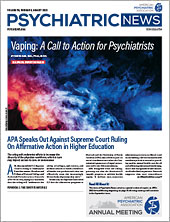A health record, or medical record, is a written account of a person’s health history and notes from encounters with individual clinicians. However, since the introduction of the Centers for Medicaid and Medicare Services Meaningful Use in 2009, a program aimed at promoting the widespread adoption of electronic health records systems, this definition has been expanded to include electronic health records.
Notwithstanding the format of a medical record, the purpose of health records remains unchanged: to serve as the primary communication medium for planning and coordinating patient care; to support proper reimbursement; to provide legal documentation to evidence care provided; and to act as the basis for quality improvement, peer review, and core clinical activities.
The vital functions a medical record plays require that its integrity be preserved. Generally, the integrity of an unaltered record is rarely questioned. While changes to medical records are necessary at times, careless modification creates doubt and suspicion.
Amendments or modifications that do not create an appearance of tampering include correcting a factual error; adding relevant information to a previous entry; accepting and amending records at the patient’s request as appropriate; or deleting a known inaccurate entry, such as notes entered on the wrong patient.
Conversely, changes that could prove disastrous are those that appear self-serving, such as alterations made when anticipating a lawsuit or after learning of a legal action or a complaint, in response to adverse patient events or changes suggestive of reimbursement enhancement. To avoid these pitfalls, it is important to understand when modifications to medical records are acceptable and when they are detrimental.
Here are some recommendations for risk management best practice when modifying patient records:
•
Develop policies and procedures for health care professionals and staff to follow when amending medical records.
•
Modify records as soon as an obvious error is discovered to maintain a factual representation of events.
•
Modify only your own entries. Keep the original entry intact. For electronic records, identify the original and the modified contents.
•
If additional information must be added, create a clearly labeled addendum in the progress notes with an explanation of what information was changed and the reason for the modification.
•
Always date, time, and sign modified or revised entries in medical records, and ensure the modified original entry is accessible and traceable to all users.
•
When considering medical record modification, ask the following: Is the information to be added or changed relevant and accurate? Is the amendment considered supplemental information to the original content? Could the modification compromise the integrity of the record? Could the correcting and changing of records be viewed as unprofessional and undermine your credibility and defense?
•
Never change a medical record after learning of legal action or a regulatory complaint.
•
If accepting or declining a change requested by a patient, make a note of the request and date in the medical record, your reasons for declining or agreeing to modify the entry, and your discussion of the decision with the patient.
•
To decrease unintentional medical record fabrication, avoid overusing the copy/paste functionalities and misuse of templates.
Timely and accurately written medical records are testimonials of quality patient care and contribute to a successful defense of a lawsuit or a regulatory complaint. In court, the medical record is one of the means used to represent the care rendered. Keeping a patient’s record current and complete improves continuity of the best possible treatment every patient deserves. ■
This information is provided as a risk management resource for Allied World policyholders and should not be construed as legal or clinical advice. This material may not be reproduced or distributed without the express, written permission of Allied World Assurance Company Holdings, Ltd, a Fairfax company (“Allied World”). Risk management services are provided by or arranged through AWAC Services Company, a member company of Allied World. Ⓒ 2023 Allied World Assurance Company Holdings, Ltd. All Rights Reserved.

